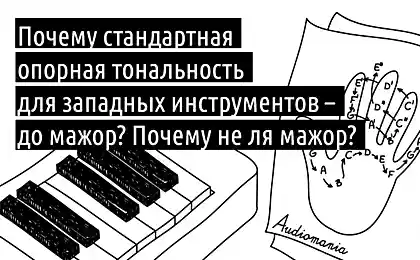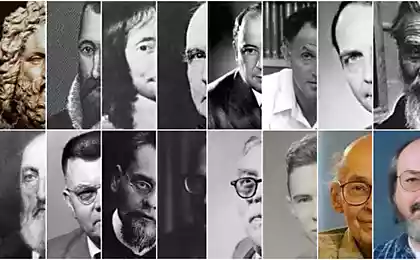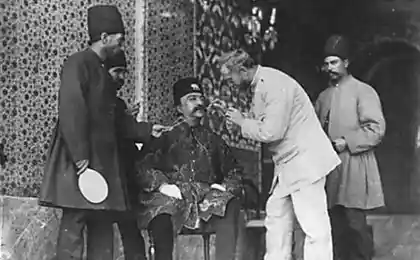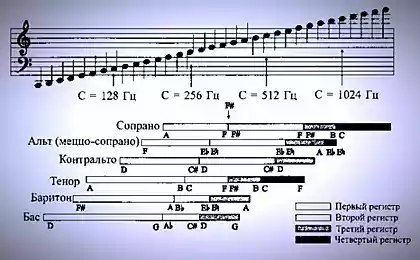688
You would not guess why we call the notes so. Checkmate, connoisseurs!
Here it happens that you live in peace for several decades, not bothering anyone, and then one day you, like a bolt from the blue, falls quite interesting information. After such cases, you willy-nilly, to the idea: "Really it's not just so, and has a logical explanation?" The information is now decided to share entertainment online magazine, surprises often even those who have behind him many years of training in School of Music. Have you ever why the notes are just such a name? In Russian it sounds like do, re, mi, fa, sol, la, si
First a little history. Before the music used in European music neumes - special characters. Originally they were a set of dashes, commas and dots, which is put on the text of the Psalms. Unlike music, neumes did not specify the exact height and length of the sound. That is, they are often used to recall the singing already known motive.
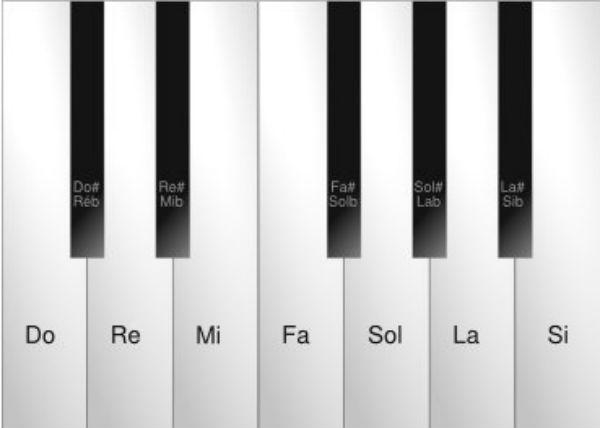
Modern notation mankind owes music theorist, Italian Guido d'Arezzo. The reforms began with the fact that the scientist introduced the first line, two of which - F and C - he defined as the main targets, highlighting them in red and yellow, respectively. With this innovation the pitch notirovannyh more accurately than before.
Soon Guido began to write notes in the form of painted squares on the four-way stave. New characters stave definitely require some notation. And then the Italian has decided to use the first syllable of the opening words of John the Baptist hymn «Ut queant laxis»:
Ut queant laxis
Resonare fibris,
Mira gestorum
Famuli tuorum,
Solve polluti
Labii reatum,
Sancte Ioannes.
Translate it can be about as follows: "To thy servants their voices could sing your wondrous deeds, cleanse the sin from our profane mouth, the father of St John».
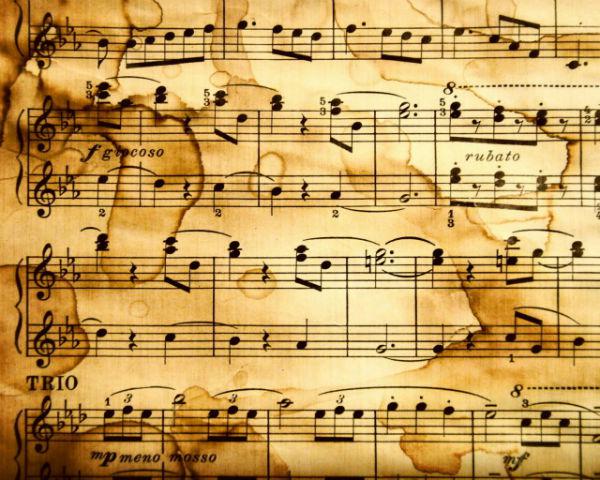
The most interesting thing is that the melody of each line was one notch higher than the previous. With a light hand of Guido d'Arezzo initial syllables of each line and began to note names: ut, re, mi, fa, sol, la
These are the pies, as they say. It turns out that you can use for life in the speech some names and not have a clue about their origin. But you must agree, is pretty darn interesting. If you are struck by the above information, be sure to share it with all your friends. I bet many of them also do not know it.
via ofigenno ru
First a little history. Before the music used in European music neumes - special characters. Originally they were a set of dashes, commas and dots, which is put on the text of the Psalms. Unlike music, neumes did not specify the exact height and length of the sound. That is, they are often used to recall the singing already known motive.

Modern notation mankind owes music theorist, Italian Guido d'Arezzo. The reforms began with the fact that the scientist introduced the first line, two of which - F and C - he defined as the main targets, highlighting them in red and yellow, respectively. With this innovation the pitch notirovannyh more accurately than before.
Soon Guido began to write notes in the form of painted squares on the four-way stave. New characters stave definitely require some notation. And then the Italian has decided to use the first syllable of the opening words of John the Baptist hymn «Ut queant laxis»:
Ut queant laxis
Resonare fibris,
Mira gestorum
Famuli tuorum,
Solve polluti
Labii reatum,
Sancte Ioannes.
Translate it can be about as follows: "To thy servants their voices could sing your wondrous deeds, cleanse the sin from our profane mouth, the father of St John».

The most interesting thing is that the melody of each line was one notch higher than the previous. With a light hand of Guido d'Arezzo initial syllables of each line and began to note names: ut, re, mi, fa, sol, la
These are the pies, as they say. It turns out that you can use for life in the speech some names and not have a clue about their origin. But you must agree, is pretty darn interesting. If you are struck by the above information, be sure to share it with all your friends. I bet many of them also do not know it.
via ofigenno ru
26 most fotobomb slaughter of animals in the title role. Artistry does not take them!
This 84-year-old woman was offered $ 1 million for her house ... but her refusal was the beginning of the well-known throughout history!


